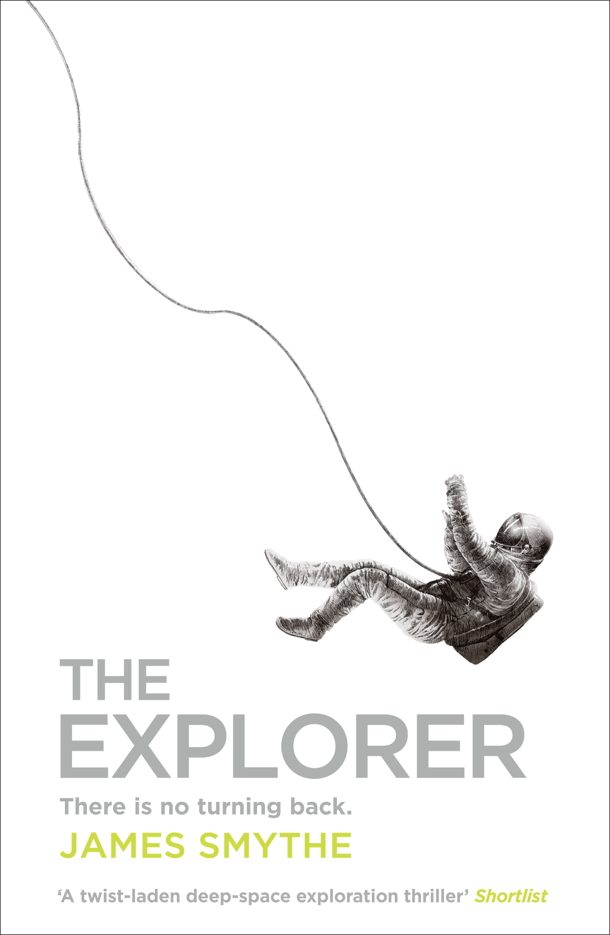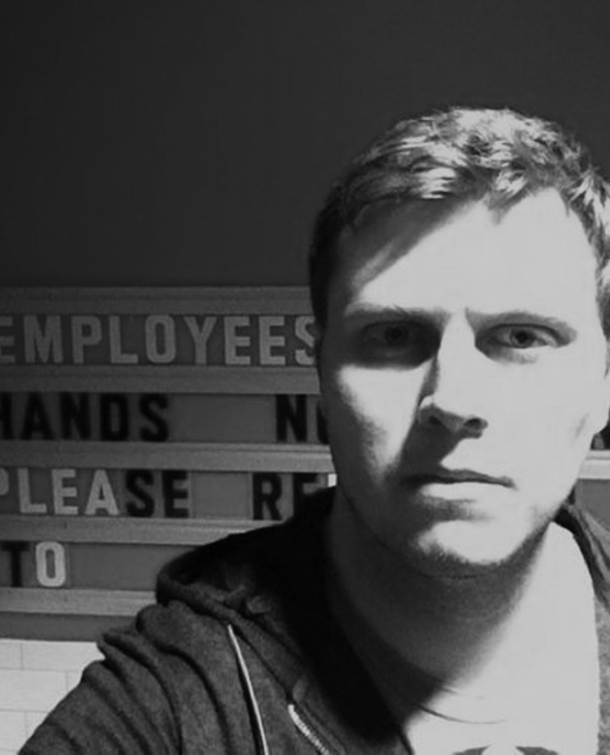August may be drawing to a close but SFX 's Summer Of SF Reading isn't over yet... We had a chat with author James Smythe about his top SF novel The Explorer ( check out our 4.5 star review ) , which lands in paperback today.

Was there anything in particular that inspired you to write The Explorer?
A few things really conspired to make me want to write the book.
First, there was the fact that very few people seemed to write smaller, quieter SF novels these days – much of the novel is a tribute to the writers that I read when I was younger, Bester and Bradbury and Lem.
But then, there was also this little uptake in public interest in space over the few years before and while I was writing it, culminating in when they dragged the Endeavour through LA – it seemed a little like we, as a society, might be getting back into actually wanting to explore space again, even if it’s from our computer screens.
Were there any other science fiction (novels, TV, films) that inspired you in the way you wrote the novel?
The Stars My Destination is a big one, and Solaris (both film and book – I really actually like the Soderburgh version as well). And two short stories by Stephen King, Beachworld and The Jaunt – both of which were tributes to classic SF writers – had a huge impact on me over the course of my life, and I wanted to capture a little of those.
I had just finished the first draft of the novel when I watched Moon for the first time as well, and I felt a real kindred spirit in that – the same sense of isolation through space.
Also, Star Trek . I’ll be a lifelong Trek fan, whatever they do, and I wanted to capture some of the sense of the original story – of the doing a mission to just see what’s out there – in the novel.
Sign up to the SFX Newsletter
Get sneak previews, exclusive competitions and details of special events each month!
Was the novel always going to be set in space, or could you have placed the characters in any isolated setting?
When I started writing the first few pages – Cormac (then unnamed) alone and stranded, his crew dead, I didn’t know where he was. But then it quickly became apparent. The story could work anywhere, I think – a submarine would have definitely worked – because the root of it is a human experience. But space has an isolation that’s pretty unmatchable.
Y ou’ve tried different storytelling devices in all your novels. Do you like to challenge yourself with new ways of writing?
I try and push myself. I’m easily distracted, and changing things between books seems to be a way to counteract that. I think it’s good to challenge yourself, simply because then you (hopefully) become a better writer.
How much research into real-life space travel did you do before writing the novel? Did you feel it was important to have a degree of reality in there?
I did a lot – I asked an astrophysicist friend to help me – and then I scrapped most of the realistic physics. I was trying to both nod at the classic era SF novels and TV I was paying tribute to (where physics served the story), as well as putting everything through this veil of the gently unreliable narrator – unreliable because he’s ignorant of the truths and the science, and so essentially writes his own narrative.
Also, I like fun tech that doesn’t make sense. I love a lot of hard, realistic SF, but I also like what’s basically (and somewhat derisively) written off as science fantasy: it’s fun to have fun and write your own rules sometimes, I think.
There are time travel aspects to the novel – something that’s notoriously difficult to make work and make sense. Did you find it a challenge to write this element of the novel?
Oh god yes, writing that’s a nightmare. Trying to keep track of it all is a pig and a half. But Post-It notes really helped. Also, the thing that makes the time travel happen – I’ll stay ambiguous for the sake of spoilers – has its own sense of logic that, once I worked it out, really helped. But there’s more of that in the sequel…
Why did you decide to make the principal character in the book a journalist? (They’re not necessarily the first profession you’d associate with an exploratory mission to outer space.)
Journalists are on the periphery of events, but always the first line of reporting them. It’s fascinating to me, and I thought perfect for Cormac. He’s there, and he’s really good at his at his job, but he’s not actually inside the event itself. He’s distant, because of both who he is and what he’s doing. And there are personal events affecting him that change his worldview – he’s bringing his own baggage to the trip, even when he thinks he isn’t.
Cormac uses a lot of pop culture references in his rationalisation of the events that unfold around him. Is this how you view the world?
Oh god yes. I devour stuff, and I always reference it. But I think we all do, especially in fandom. The big difference is that Cormac doesn’t reference books, where I do. He references films a lot – that’s his grounding. He sees the story of his journey as a movie, because that’s an aspirational thing for a real-life event, I think.
With current talk of manned trips to Mars, could you ever be tempted to accept a place on a deep space mission?
Not on your nelly. I looked at the one-way Mars trip thing, and I think that those people are crazy. Possibly slightly admirable, but there is no way I’d go anywhere that I didn’t stand a chance of coming back from. Especially not now I’ve written this book – I’m too much of a believer in life imitating art for me to step foot onto a space shuttle now…
You’ve got a sequel, The Echo , out next year. How will it fit in with The Explorer ?
The Echo is actually the second part of what’s being termed The Anomaly Quartet. There’s one being published every year for the next three years, and each of them is a continuation of sorts. The Echo has a different cast and crew, and it’s a different sort of mission: the main character, Mira Hyvönen, is a scientist, tasked with finding out what happened to the ship from The Explorer , while his twin brother stays on Earth in ground control, leading him through his mission.
It’s set 23 years after The Explorer , and I was intent on not repeating myself. I’m a big fan of sequels that step away from the original and try something a little different – they can, excuse the pun, echo the original, but I love it when they step somewhere else.
There’s also a little bit of body-horror in there as well…
But then, there’s the third, which I’m writing at the moment, and that’s completely different again…
Interview by Jess Collett
The Explorer is out now from Harper Voyager.

SFX Magazine is the world's number one sci-fi, fantasy, and horror magazine published by Future PLC. Established in 1995, SFX Magazine prides itself on writing for its fans, welcoming geeks, collectors, and aficionados into its readership for over 25 years. Covering films, TV shows, books, comics, games, merch, and more, SFX Magazine is published every month. If you love it, chances are we do too and you'll find it in SFX.


